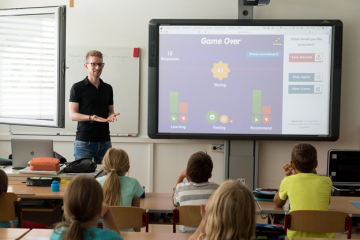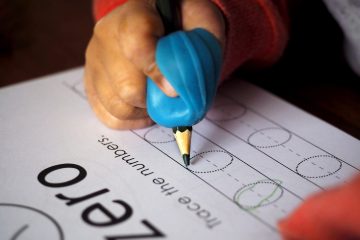 Any child development expert will tell you that a child’s well-being and his or her capacity for learning are intrinsically linked. From the earliest of ages, children require a basic sense of comfort and security in order for their developing brains to be receptive to other stimuli. Most parents and educators realize this, but what many fail to acknowledge is that this prerequisite for learning continues into childhood, adolescence, and even adulthood! Enter social and emotional learning, a model advocates affectionately refer to as SEL.
Any child development expert will tell you that a child’s well-being and his or her capacity for learning are intrinsically linked. From the earliest of ages, children require a basic sense of comfort and security in order for their developing brains to be receptive to other stimuli. Most parents and educators realize this, but what many fail to acknowledge is that this prerequisite for learning continues into childhood, adolescence, and even adulthood! Enter social and emotional learning, a model advocates affectionately refer to as SEL.
What Is SEL?
SEL, or social and emotional learning, is a movement that seeks to help children (and adults) develop effective life skills that when implemented, help them be happier, healthier, and therefore, in a better position to learn and perform academically.
SEL Research
SEL may be a relatively new movement, but it has been researched extensively, and the results are pretty amazing. In a meta-analysis of 213 studies, researchers found that SEL programs enhanced students’ attitudes about school, themselves, and others and even improved their standardized test results by 11 percentile points on average. Furthermore, they identified the most effective programs as those that are SAFE. That is, those that are:
Sequenced- use a sequenced set of activities aligned with objectives
Active- utilize forms of learning that are active rather than passive
Focused- contain elements specifically focused on developing personal and social skills
Explicit- target specific personal and social skills
SEL In Your School?
If you haven’t received notification of a SEL program at your child’s school, that doesn’t necessarily mean that there’s not one in place. Like most other major school initiatives, SEL is usually a state-wide program. To find out whether or not the schools in your state are implementing SEL, check the Collaborative for Academic, Social, and Emotional Learning’s website.
What You Can Do?
Whether or not your state has adopted a SEL program, you can do your part to help your child develop these life skills. Of course, you first have to master them yourself! There are many online programs for both children and adults that can help you and your child develop these skills. If you’re short on time or just feel as if good-old-fashioned parenting is enough for your child, then here’s the gist of any SEL program: teach your child to value the good things that happen to him/her as much as (or ideally more than) the negative things that occur in all of our lives. Then, talk to your child about self-talk. It may be an awkward conversation, but it’s an important one. Let your son or daughter know that we all talk to ourselves (although most of us don’t do it out loud). Self-talk can be detrimental to our self-esteem, and most of us don’t even know we’re doing it! Once you bring awareness to it, though, you suddenly have the ability to control it. You can either accept the negative thoughts or reject them and replace them with positive ones.
Of course, this is just the tip of the iceberg. A comprehensive SEL program can help your child acknowledge feelings and deal with them effectively, improve interpersonal skills, deal with challenges, become more independent and responsible, and more!
Want to learn more about SEL? Visit the Learning Matters website to read more and to watch videos of SEL programs in action!


